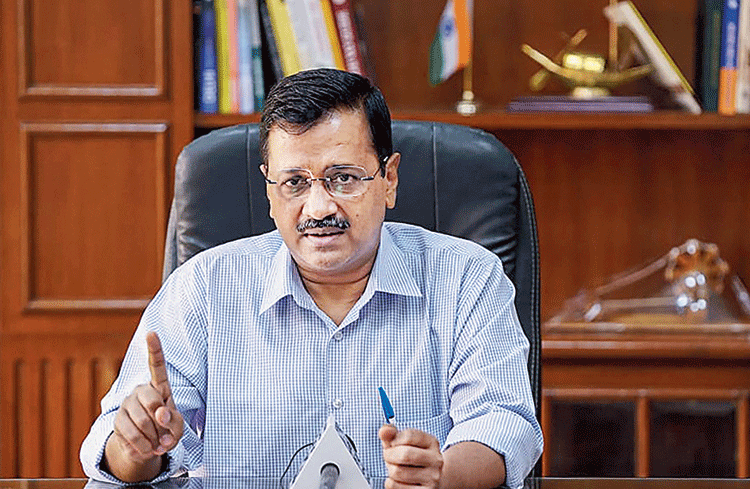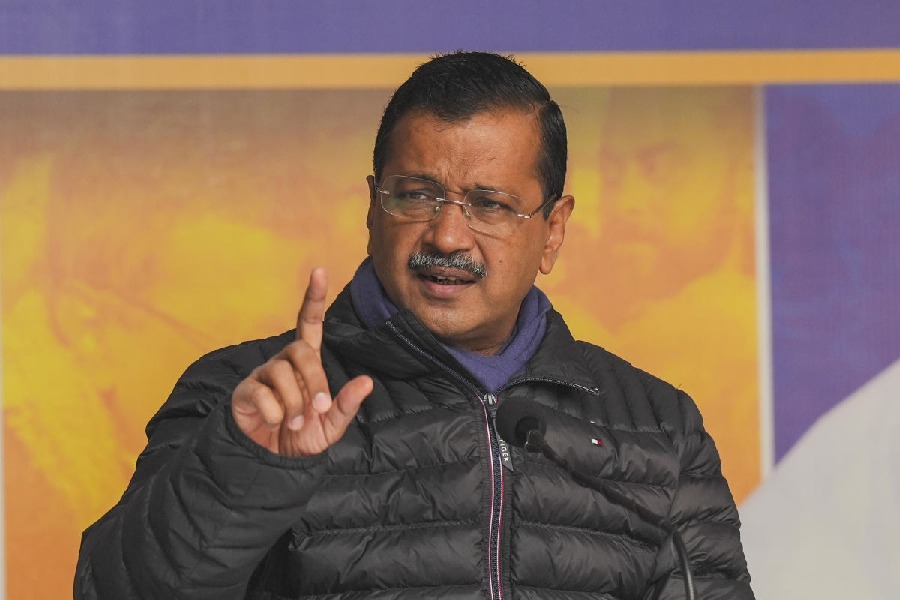The Delhi government has ruled out the possibility of another lockdown even though the national capital has seen a sharp surge in Covid-19 cases over the last fortnight with health minister Satyendar Jain asserting that the economy "cannot be kept shut for eternity as livelihoods of millions depend on it”.
The minister also asserted that "extreme caution and not panic" should be the response of the city, and people should exhibit greater alertness and responsibility in public places to deal with the health crisis.
In the first eight days of the month, Delhi registered 22,378 fresh coronavirus cases, including 3,609 fresh cases on Tuesday, the highest single-day spike in 76 days, as the city moved towards the two lakh-mark with over 4,618 deaths due to Covid-19 so far.
Amidst an atmosphere of anxiety due to the massive surge in Delhi, especially after coronavirus cases were steadily declining in August, Jain said, "This is a once in a century pandemic after the Spanish Flu of 1918. And people will have to learn to live with Covid-19 as it is not going away so soon".
"Also, one can't keep everything (economy) shut for eternity, as livelihoods of millions depend on it," the Delhi health minister told PTI in an interview when asked if there could be another phase of lockdown in the city.
His remarks came a day after Delhi Metro resumed services in a calibrated manner on Monday. Many feel that resumption of metro services may lead to a further spike in coronavirus infections.
Need for people to be alert, responsible
Asked if it was a right decision to open the metro amid spurt in cases, he said, "People will have to be more alert and exhibit greater responsibility in public. If you don't wear a mask, not just metro, you can contract the infection anywhere".
Asserting that "there is no need to panic", Jain said, "like I have said, we have to learn to live with Covid. Earlier, it was believed that the virus will die out in summer or it will taper off in the monsoon. It is still there. It seems it will continue for a fairly long time."
While the Delhi Metro was closed since March 22, a nationwide lockdown was imposed by the Centre from March 25, pushing people to stay indoors and halting commercial activities. The unlocking of economic activities in a phased manner has begun from June onwards.
"If lockdown was the solution, then no new cases would have emerged. New cases in the country have touched the 90,000-mark in a day, and the unlock process is still on. The lockdown has not ended yet," Jain said.
Many states still opting for lockdowns
Many states have extended or reinforced lockdowns after cases increased drastically. The Punjab government recently said that all existing restrictions imposed to combat Covid-19, including weekend lockdown, will be in place in most of the municipal towns of the state till the end of September.
Bengal has enforced a three days of strict lockdown this month.
Medical experts have already flagged multiple reasons that could have contributed to increasing caseload in the national capital in the past one week or so, including, reopening of economic activities and complacency among people in adhering to norms such as wearing masks and practicing social distancing.
Jain agreed with the experts. “However, authorities have penalised such violators and a good quantum of fine has been imposed on them in the last several days, which should serve as a deterrence to others, who are displaying a laidback attitude towards the pandemic situation," he said.
"I want to repeat again. The number of new cases has been rising, also because we have increased the testing exponentially. People should not panic but be cautious," he asserted.
Chief Minister Arvind Kejriwal had recently announced to double the scale of testing to 40,000 per day.
11.54 lakh tests in 24 hours
Over 11.54 lakh Covid-19 tests were conducted in a span of 24 hours taking India's cumulative tests to over 5.18 crore so far, while during the same period nearly 75,000 people have recuperated from the disease taking the total number of recoveries to 33,98,844 in the country, the Centre said on Wednesday, reported NDTV.com.
Timely diagnosis through higher levels of countrywide testing has furnished valuable opportunities to isolate or hospitalize the positive cases adequately in advance for appropriate treatment. This in turn has facilitated lower mortality rates (1.69 per cent as on date) and speedy recovery, the Union Health Ministry underlined.
"India is one of the few countries that have reported very high numbers of daily testing. The daily testing capacity has already crossed 11 lakh," it highlighted. With 11,54,549 tests conducted for detection of Covid-19 in a span of 24 hours on Tuesday, India's cumulative tests have reached 5,18,04,677.










